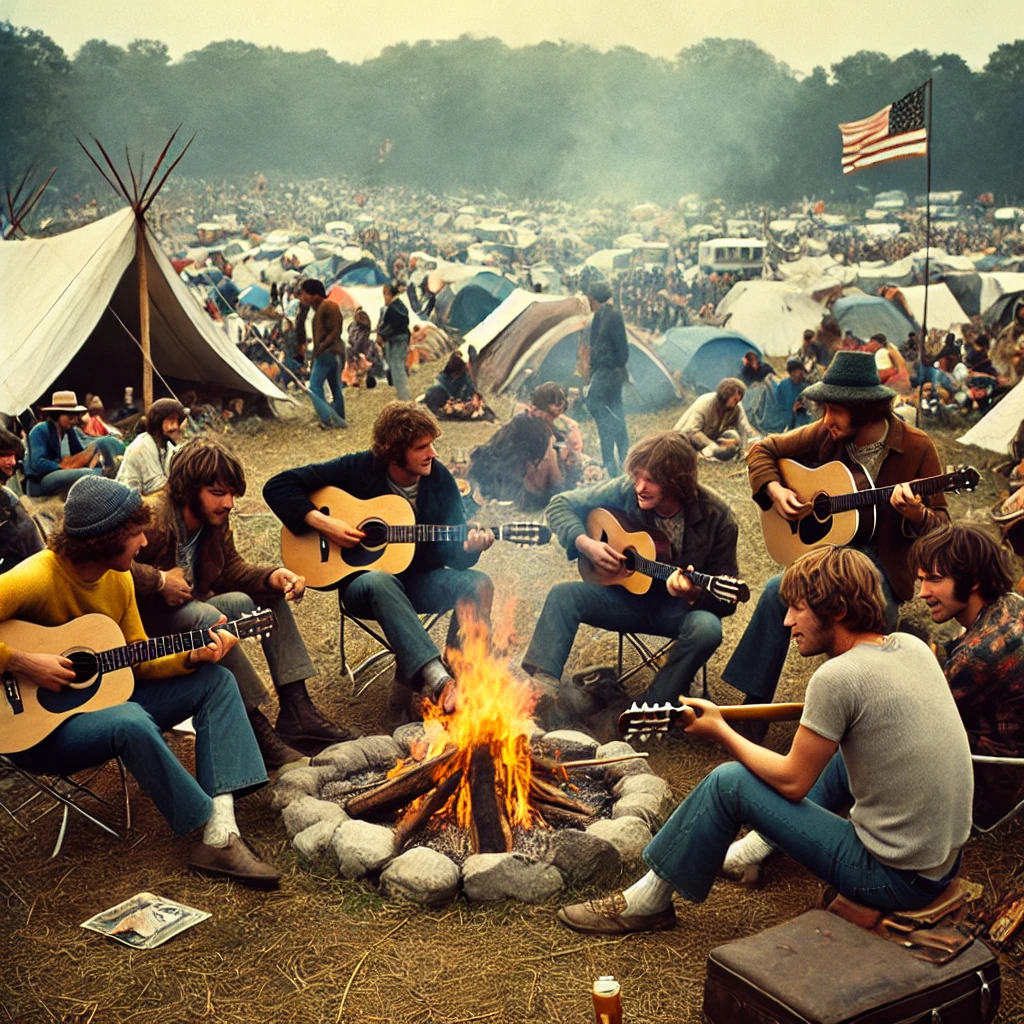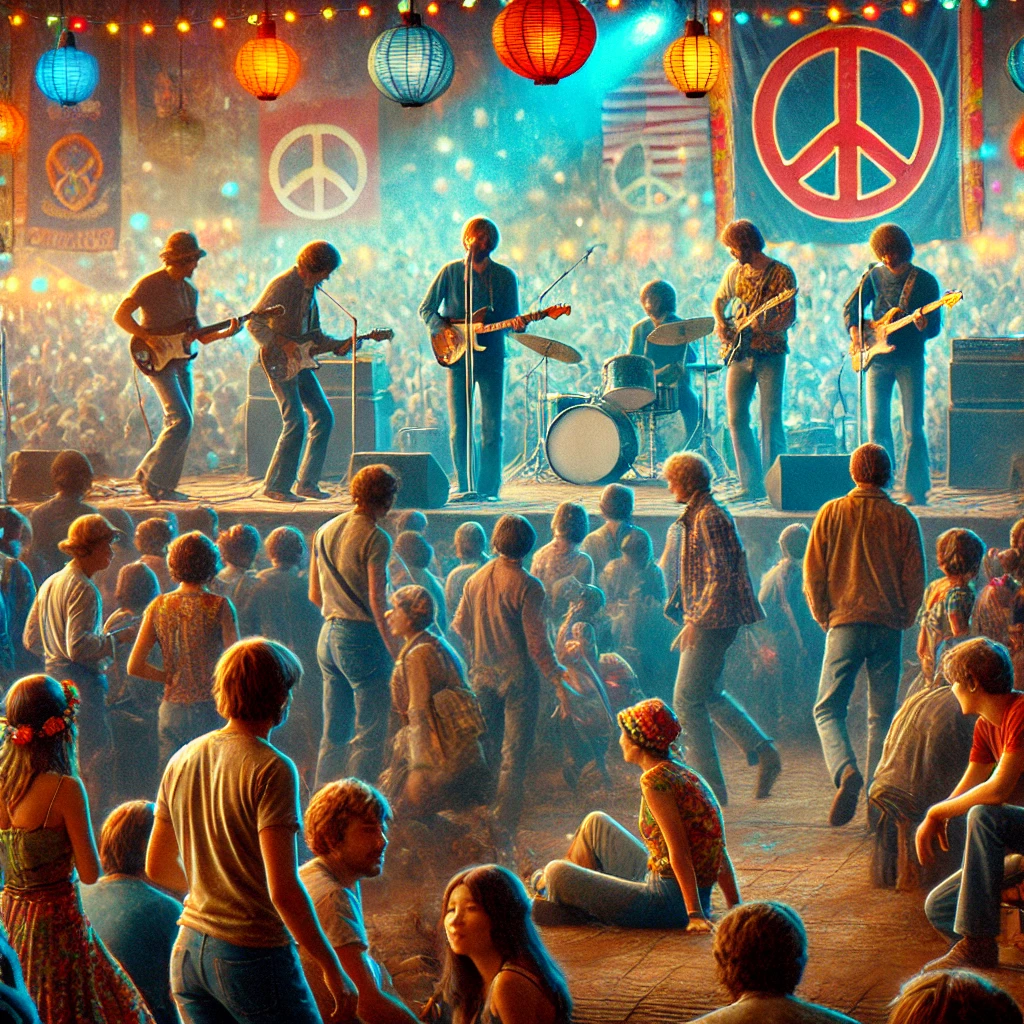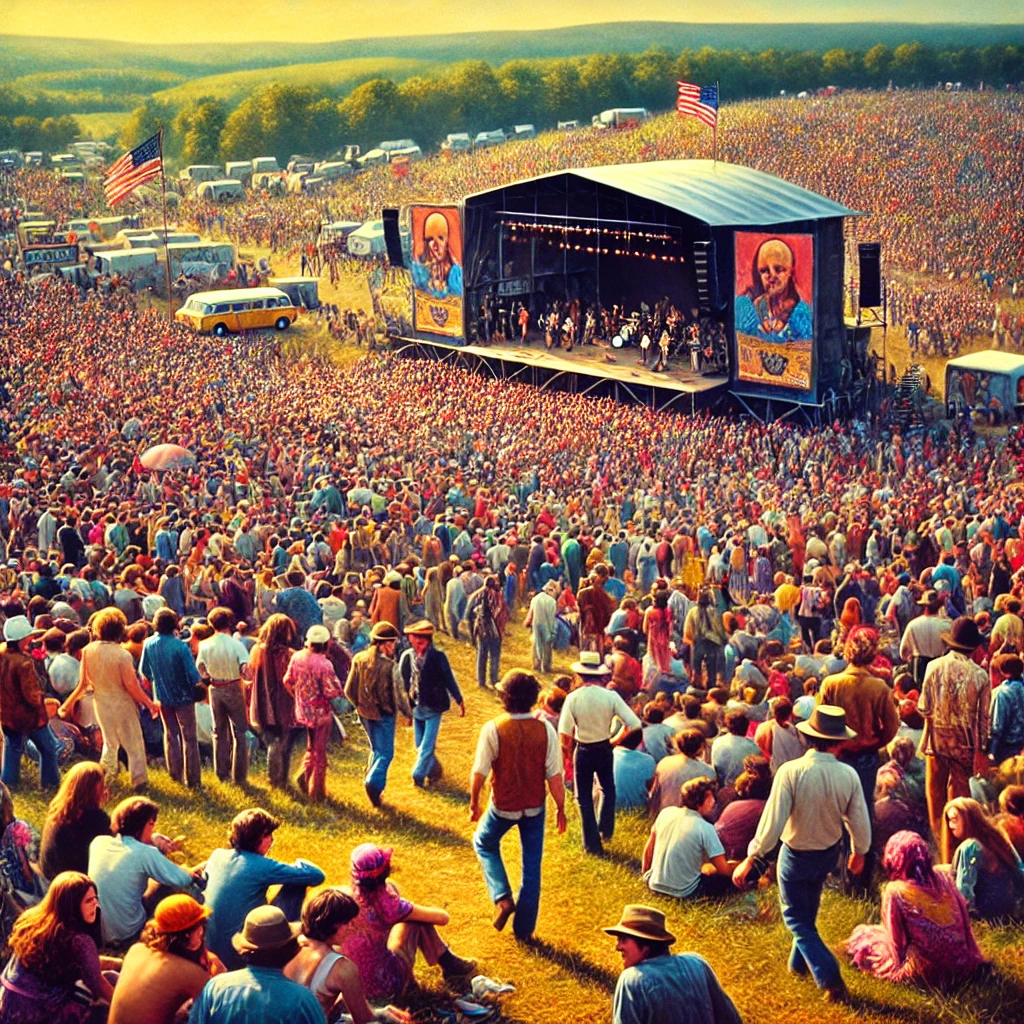On August 15, 1969, the Woodstock Music & Art Fair, commonly known as Woodstock, opened in Bethel, New York. This iconic festival, held on a dairy farm owned by Max Yasgur, was originally conceived as a “Aquarian Exposition: 3 Days of Peace & Music.” Woodstock was organized by four young entrepreneurs—Michael Lang, Artie Kornfeld, Joel Rosenman, and John Roberts—who envisioned it as a major music event and countercultural gathering. What began as a small-scale event quickly evolved into one of the most famous music festivals in history.
Woodstock was meant to be a for-profit venture but soon became a symbol of the 1960s counterculture movement, which embraced ideals of peace, love, and unity. The festival attracted an unexpected crowd of over 400,000 people, overwhelming the organizers and transforming the event into a free, impromptu gathering that celebrated music and social change. The event’s large turnout and its peaceful, communal atmosphere marked it as a landmark cultural phenomenon.

The Legendary Performances and Cultural Impact
The Woodstock festival featured performances by some of the biggest names in music, including Jimi Hendrix, Janis Joplin, The Who, and Jefferson Airplane. These performances were pivotal in defining the era’s music and popular culture. Hendrix’s rendition of “The Star-Spangled Banner” became an iconic moment, capturing the spirit of the festival and the era’s political climate.
The festival’s impact extended beyond its music performances. Woodstock became a symbol of the peace and love ethos of the 1960s and represented a generation’s desire for social change. The event’s ability to foster a sense of community and shared purpose among its attendees reflected broader cultural shifts and left a lasting imprint on music and cultural history.

The Legacy and Reunions
The legacy of Woodstock has endured for decades, influencing numerous music festivals and cultural events. The festival’s spirit of inclusivity and artistic expression continues to inspire generations. Woodstock’s success led to several anniversary reunions, including the 25th, 30th, and 50th anniversaries, each of which sought to recapture the festival’s magic while addressing contemporary issues.
The original Woodstock site in Bethel, New York, has been preserved as the Bethel Woods Center for the Arts, which hosts events and exhibitions celebrating the festival’s history. The Woodstock Museum at Bethel Woods features memorabilia and interactive displays, allowing visitors to explore the festival’s impact on music and culture. The enduring appeal of Woodstock reflects its significance as a touchstone of 20th-century counterculture and musical innovation.

The opening of the Woodstock festival on August 15, 1969, marked a transformative moment in music and cultural history. The event became an enduring symbol of the 1960s counterculture, celebrating ideals of peace, love, and unity. Woodstock’s influence continues to resonate through its music, its legacy, and its impact on generations of festival-goers and cultural enthusiasts.
